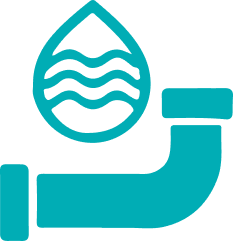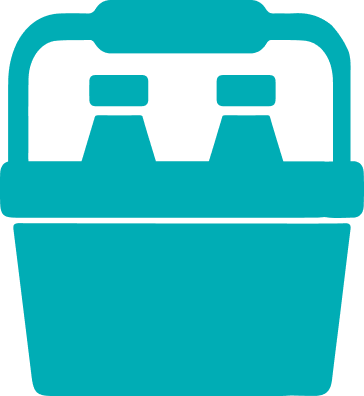Private Well Testing
Ensure Safe, Clean Water from Your Private Well
Private wells provide water for millions of households, but unlike public water systems, they are not regulated by federal authorities. Regular testing ensures your well water is safe for drinking, cooking, and other uses, protecting your family from potential health risks.
"*" indicates required fields
Why Private Well Testing is Essential?
While private wells are a reliable water source, they are vulnerable to contamination from environmental and human activities. Regular testing is critical to detect and address potential hazards like:

Bacteria and Pathogens
Contaminants such as E. coli, coliforms, and other harmful microorganisms can cause gastrointestinal and other health issues.

Nitrates
Often a result of agricultural runoff or septic system leaks, nitrates can pose serious risks, particularly to infants and pregnant women.

Heavy Metals
Metals such as arsenic, lead, and cadmium may seep into groundwater, leading to chronic health issues.

Pesticides and Chemicals
Residues from nearby farms or industrial activities can introduce harmful chemicals to your water.

pH and Mineral Imbalance
Improper pH levels or high mineral content can corrode plumbing or affect water quality.
Did You Know?
The EPA does not regulate private wells, meaning regular testing is the sole responsibility of the well owner.
Our Private Well Testing Services
We provide comprehensive testing to ensure your private well water is safe and meets the highest standards. Our services include:

Microbiological Testing
Detect bacteria like E. coli, coliforms, and other pathogens.

Chemical Analysis
Test for harmful substances such as nitrates, nitrites, and volatile organic compounds (VOCs).
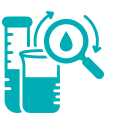
Heavy Metal Screening
Identify metals such as arsenic, lead, and mercury using advanced ICP-MS technology.

pH and Water Hardness Testing
Assess pH levels and water hardness to prevent plumbing issues and improve water quality.

Customized Solutions
Tailored testing for specific concerns, such as proximity to industrial or agricultural zones.
Our Testing Process is Simple and Efficient
01.
Contact Us
Reach out to schedule your test at a convenient time for you.
02.
Choose Your Option
Some parameters, like pH and chlorine, conductivity, turbidity, can be tested momentarily with
Read More
Read More
Read Less
03.
Sample Collection
We can visit your location to collect water samples, ensuring proper techniques are followed for
Read More
Read More
Read Less
04.
Receive Your Results
Get detailed, actionable insights from our reliable reports, helping you address any water quality concerns effectively
Who Should Test Their Drinking Water?
Not Sure If You Need Testing? Contact Us for Guidance
Don’t wait for issues to arise—regular testing can prevent costly problems and health risks.
Our services are designed for:
Homeowners: Regular testing ensures your family’s health and safety.
New Property Owners: Verify the safety of well water before buying a home.
Seasonal or Vacation Homes: Ensure the safety of wells not in regular use.
Small Communities Sharing a Well: Protect all users by testing the shared water source.
Farms and Rural Properties: Monitor contamination from nearby agricultural activities.
When to Test Your Private Well?
Annually: Test for bacteria, nitrates, and other common contaminants.
After Environmental Changes: Flooding, heavy rain, or nearby construction can introduce new risks.
When You Notice Changes: Alterations in taste, color, or odor may signal contamination.
Following Repairs: Ensure water remains safe after maintenance or structural changes to your well.
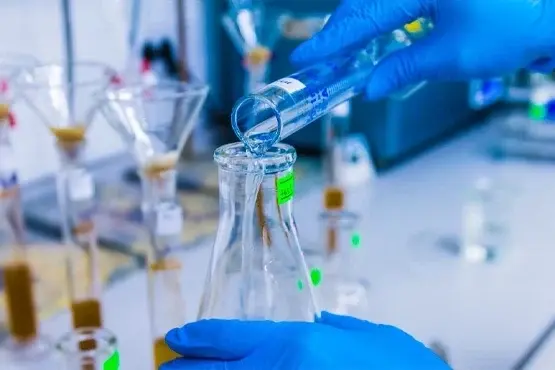
Benefits of Regular Testing

Health Protection
Prevent waterborne illnesses caused by bacteria, metals, or chemicals.

Peace of Mind
Know your water is safe for daily use.

Cost Savings
Avoid expensive repairs or medical bills by addressing issues early.
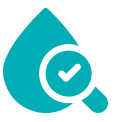
Regulatory Awareness
While private wells are not federally regulated, testing can help you meet local safety standards.
Expert Insights on Testing Methods
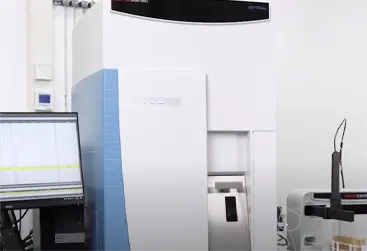
ICP-MS (Inductively Coupled Plasma Mass Spectrometry) for detecting trace metals with precision.
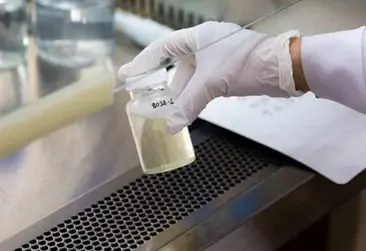
Microbiological Testing for identifying pathogens like E. coli and Legionella.
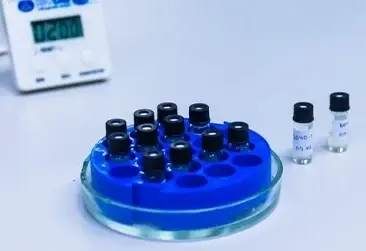
Ion Chromatography for measuring ions like nitrates and sulfates.
Reliable Water and Air Quality Testing Services
Protect your environment with our specialized water and air quality testing solutions, offering comprehensive analysis to detect contaminants, convenient sample collection, and on-site testing for immediate results. Contact us today to schedule a consultation or on-site visit and take the first step toward a healthier, safer environment!
Frequently Asked Questions
How often should private well water be tested?
Annual testing is recommended for bacteria and nitrates. Additional tests should be performed if changes in water quality are observed or after major events like flooding.
What contaminants are common in private well water?
Common contaminants include bacteria, nitrates, arsenic, and pesticides. Contamination may result from natural deposits, agricultural runoff, or faulty septic systems.
What should I do if my well water is contaminated?
We provide tailored solutions, such as shock chlorination, installing filtration systems, or addressing external contamination sources like septic leaks.
Can I test my well water myself?
While DIY kits are available, professional testing ensures accurate results and reliable recommendations.
How long does it take to get results?
Standard results are typically available within 2–5 business days, with expedited options for urgent needs.
Request a Test or Consultation
Your Environment, Our Priority – Fill out the form below, and our team will get back to you as soon as possible.
"*" indicates required fields

